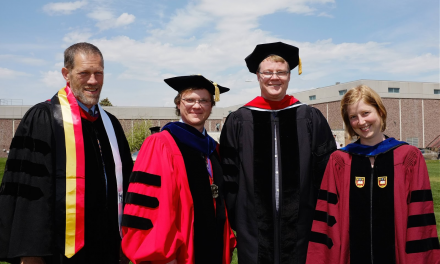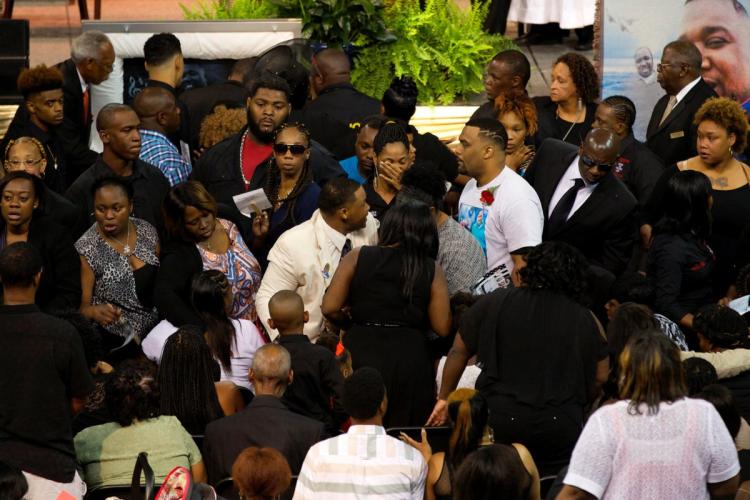The conclusion of the trial convicting polygamist Warren Jeffs of sexually assaulting two young women has brought some closure to this troubling story about the leader of the Fundamentalist Church of Jesus Christ of Latter-Day Saints. The Los Angeles Times reports that throughout the trial, Jeffs claimed his religious rights were being violated. He described himself as God’s spokesperson on Earth, and prosecutors played tapes in which Jeffs instructed the victims on how to please him sexually, telling them that in doing so they were pleasing God. Troubling, indeed.
Stories such as these damage the credibility of God-talk in our pluralist context. Many will say that it is good to be suspicious of anyone’s claims to know God’s will. We have to have separation between Church and State, they say. And many secular feminists will now have further evidence that religion is dangerous for women.
But as Fr. Thomas Massaro argues in his book Living Justice, the Catholic tradition advocates for an ethic of social engagement. Massaro says that Christians must hold together in creative tension their citizenship and their discipleship. Fr. Massaro reflects on Tertullian’s provocative question: “What has Jerusalem to say to Athens?” In his answer he explains that the two most extreme answers to Tertullian’s question (“nothing” and “everything”) are both misguided and dangerous. I think it is worth quoting him at length:
To claim that Jerusalem has nothing to say to Athens would amount to giving up the struggle before it begins. It would be irresponsible to deprive society of the contribution of religiously motivated persons whose ideas and energies are the potential basis for much needed activism and social movements for great improvement… It would also be unwise to suggest that Jerusalem has everything to say to Athens. In other words, it would be misguided and even dangerous to claim that religious messages should dictate the terms of public policy or social institutions in a complex, pluralistic society. Even those who look favorably upon the way religious traditions inspire greater morality and justice in society wisely recognize the limits of religious influence on the working of politics. To forget this insight is to risk sliding into a situation of crass theocracy—literally the “rule of religion,” where public policy proceeds at the beck and call of religious leaders (21-22).
Massaro’s middle way is compelling. He elaborates on this position in other parts of his book when he says that Christians need to draw not only on religious language but also on social analysis when they make claims in the public sphere. Ultimately the trial of Warren Jeffs demonstrated to the jury that his so-called religious practice was unlawful and harmful. Jeffs represented himself, but was mostly silent during the trial (he gave no opening statement and refused to cross-examine the state’s witnesses).
But many will likely remain suspicious of God-talk in the courtroom, or in the legislature, or on the campaign trail. That’s why it is increasingly important for Catholics to be able to engage in the political process and avoid relying completely on religious rhetoric that will only be compelling for fellow believers.





Hey there Emily. Can I ask what kinds of public Catholics (courtroom, legislature, campaign trail) you have in mind that rely “completely on religious rhetoric?” I’m trying to think of an example in my head and haven’t been able to come up with one.
Hi Charlie,
I didn’t have anyone in mind, and I certainly don’t want to imply that I would put someone in the same camp as Warren Jeffs. I just think that we need to have his case in mind when we invoke religious language for other (more noble) claims against abortion, unjust war, or other issues in public policy. I was trying to recover some use of appropriate God-talk even despite people like Jeffs. I can think of issues recently in which religious groups were advocating for or against particular laws: Jewish groups in San Francisco opposed the proposed ban on male circumcision, or the USCCB opposed the DHHS guidelines mandating insurance provide contraception for women. I proposed Massaro’s middle way instead of using Jeffs as a reason to ban religious discourse in the public sphere. Does that makes sense?
If you expand the options to “media outlets” that engage in political discourse, someone like Michael Voris (a la the Vortex) and his niche might fit the bill of Catholics who rely on exclusively religious rhetoric.